After nine days and nights of pulling artillery into the western battlefield to prepare to attack the Dien Bien Phu stronghold, on January 27, 1954, the Song Lo regiment received orders to pull the artillery out.
96-year-old colonel talks about the Dien Bien Phu campaign in 1954. Video : Ngoc Thanh
"The soldiers were confused and asked why the artillery was pulled out. But the commander only had three things to say to the soldiers: Determined to destroy Tran Dinh (the code name of Dien Bien Phu), absolutely trust in superiors and thoroughly obey orders," Colonel Nguyen Huu Tai, former Political Commissar of Regiment 209 (Song Lo Regiment), Division 312, told a story from 70 years ago.
The 96-year-old colonel returned to the old battlefield to attend the conference on Dien Bien Phu Victory and the cause of building and defending the socialist Vietnamese Fatherland on April 11. Recalling memories of Dien Bien, he remembered his heroic comrades from the Song Lo group who remained on the battlefield, remembered General Vo Nguyen Giap - the eldest brother of the army and felt lucky that "heaven still allows me to be here today" to speak a few words.
The Song Lo Group was ordered to manually pull 12 cannons into the battlefield. After 9 days and nights of the cannons reaching the battlefield, they were ordered to pull them out. The way to pull the cannons out was exposed and was bombed by French planes day and night. Many soldiers were killed and wounded, and the damage was equal to a battle at a stronghold. At the same time, the French army spread leaflets proclaiming "ready to welcome" as a challenge to the Viet Minh army.
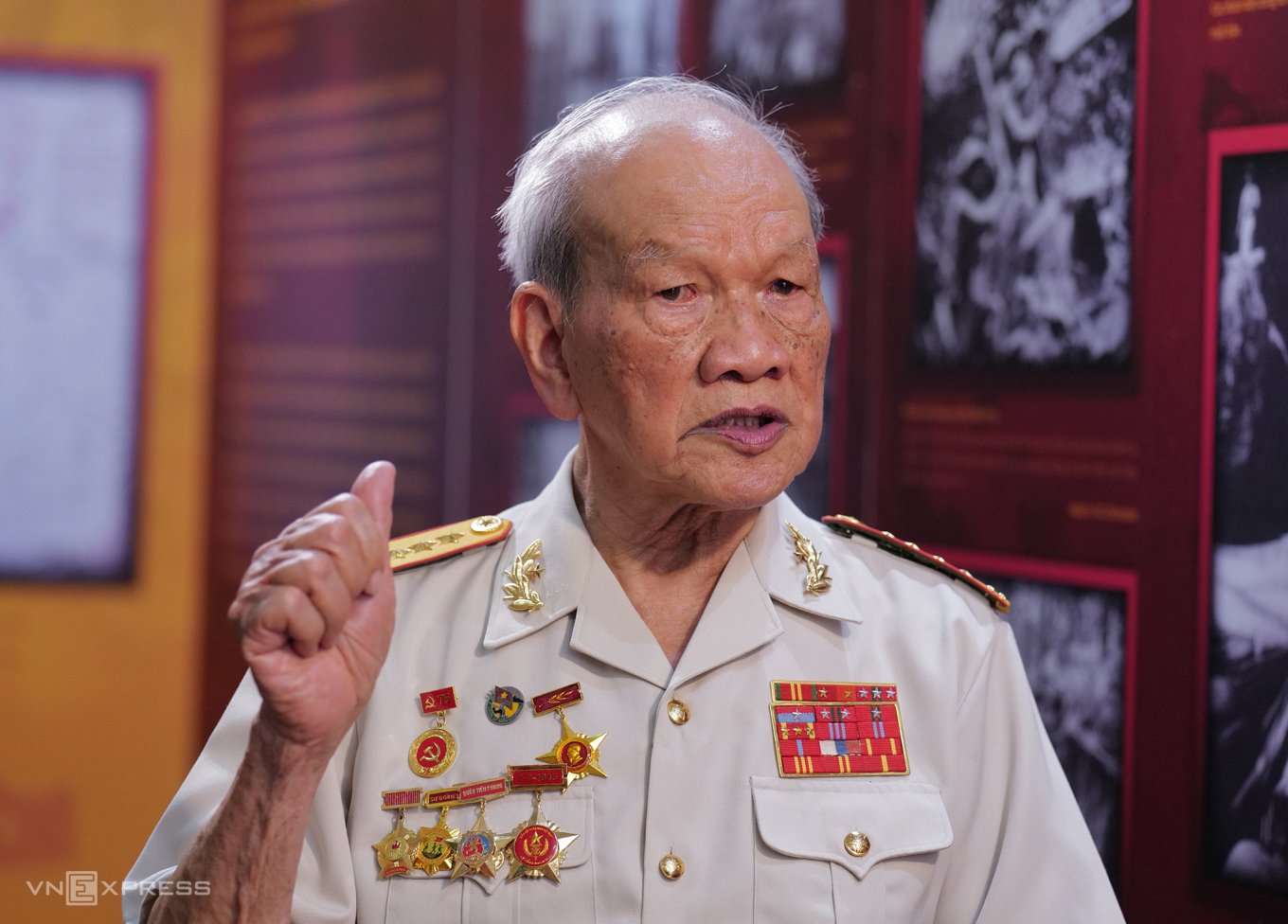
Colonel Nguyen Huu Tai returned from Hanoi to Dien Bien to attend the conference on April 11. Photo: Ngoc Thanh
After setting up the battle positions, before the departure on the afternoon of March 13, 1954, the troops heard President Ho's letter encouraging them to "win big" and the order of General Vo Nguyen Giap. "The fighting spirit of the Dien Bien Phu troops that year was like the determination to kill the Mongols of the Tran Dynasty soldiers to destroy the Yuan-Mongol army," Mr. Tai likened.
However, the days of pulling artillery in and out, digging battlefields, lacking food and drink, and fighting for long periods of time caused the soldiers' health to decline. After the first summer rains poured down on the Dien Bien basin, the trenches were flooded, and soldiers had to wade through mud. "Pessimism and negativity had somewhat affected the fighting spirit," Mr. Tai acknowledged, citing the manifestation of the negative right-wing ideology that was common at that time: fear of hardship, fear of long-term fighting, and some people wanted to retreat to rest.
After two attacks, at the campaign summary conference held right on the battlefield on April 6, 1954, the atmosphere was "tense but very fair". The commanders accepted the strengths and weaknesses out of a sense of responsibility to the troops.
General Vo Nguyen Giap analyzed the shortcomings of some units in the battles on the Eastern highlands, "not because the cadres lacked experience but because they did not thoroughly follow orders". The Party Committee of the Front assessed that negative rightist ideology, if not resolved soon, would pose a danger to the whole situation.
In addition to rectifying ideology, the commanders assigned tasks to each unit to consolidate the battlefield, attack, dig trenches to cut the airport, and instruct them to take care of the material and spiritual life of the troops so that they could fight for a long time. Mr. Tai clearly saw on the faces of the experienced commanders of that year, the haggardness due to lack of sleep, and the traces of anxiety.
After the conference, military exercises and political activities took place regularly in the unit, helping to raise the morale of the entire army before the final major battle, until the day of total victory on May 7, 1954.
Mr. Tai assessed that the lesson of fighting against rightist ideology on the front line along with the decision to change the direction of fighting quickly to fighting steadily were two key factors that ensured victory on the battlefield. He and his comrades remembered that lesson for the rest of their lives, bringing it with them into the resistance war against the US to save the country.
Looking back 70 years, the Dien Bien Phu victory, along with Bach Dang, Chi Lang... marked milestones in the process of defending the Fatherland. For Colonel Tai, that was the glory of his entire military career. "There is a saying that old soldiers with white hair/Tell the story of Nguyen Phong forever. As for me, an old soldier with white hair, I will forever tell the story of Dien Bien," he said amid thunderous applause throughout the hall filled with 500 delegates.
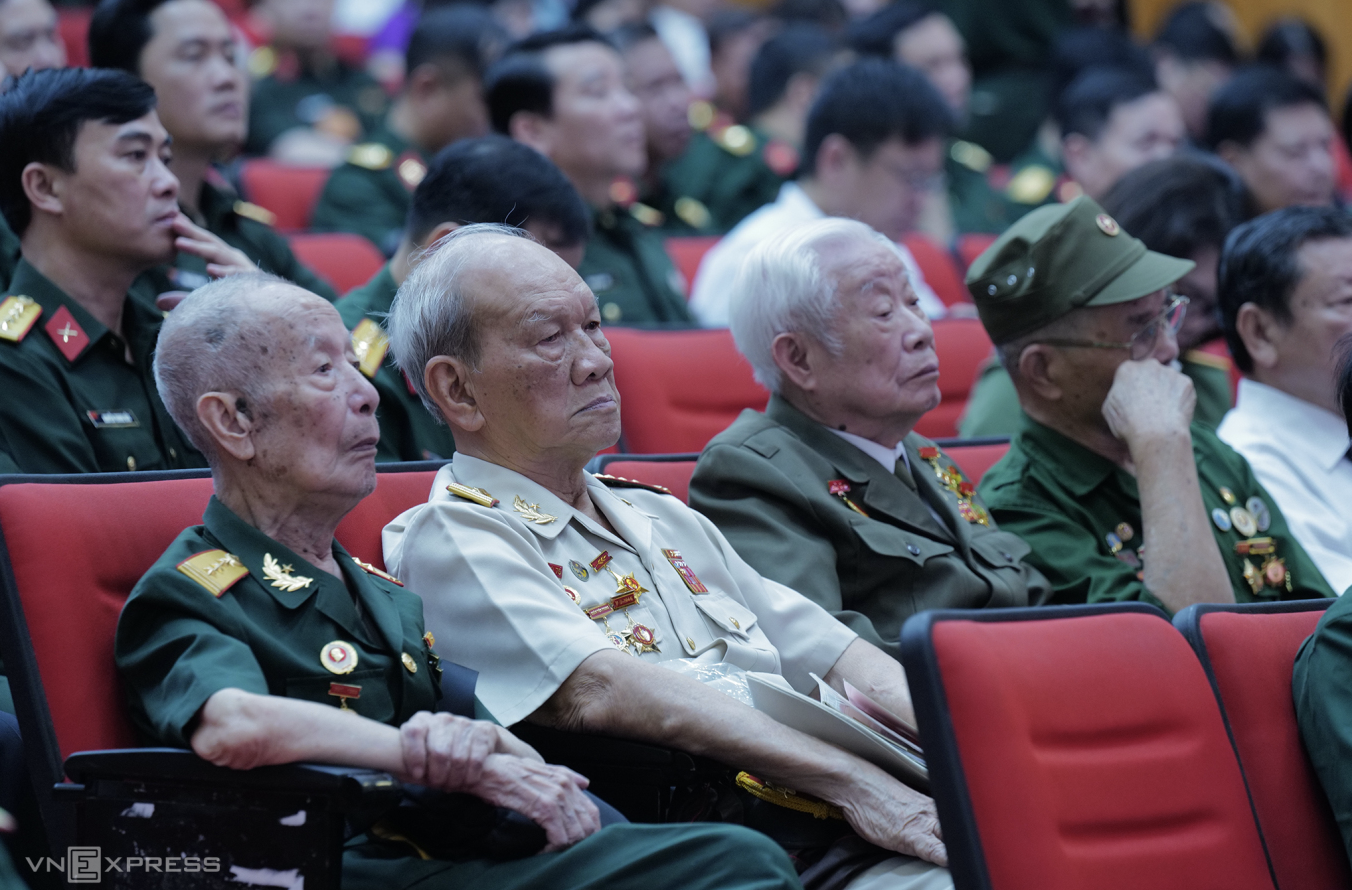
Dien Bien soldiers, all over 90 years old, attended the conference to celebrate the 70th anniversary of the victory. Photo: Ngoc Thanh
General Luong Cuong, Director of the General Department of Politics of the Vietnam People's Army, affirmed that the Dien Bien Phu victory was a milestone in the nation's history, an important event in the world's political life in the 1950s. The 70-year delay helps the next generation have a more complete understanding of the magnitude and influence of the event as well as the lessons in building and defending the Fatherland. This is an opportunity to pay tribute and remember the compatriots and soldiers who fell for the cause of national liberation.
Closing the conference that lasted more than three hours with 7 presentations, Prof. Dr. Nguyen Xuan Thang, Director of the Ho Chi Minh National Academy of Politics, said that the Organizing Committee received more than 100 reports with many valuable contents. However, the time has passed and the war has been prolonged, making archiving difficult, many documents have not been fully collected. Most of the historical witnesses who directly participated in the campaign are no longer alive, some of the elderly are in poor health and could not be present here.
He hopes that after the conference, experts will continue to collect and provide more documents about the Dien Bien Phu campaign, contributing theoretical and practical lessons in the cause of building and defending the country today.
Hoang Phuong - Vnexpress.net
Source

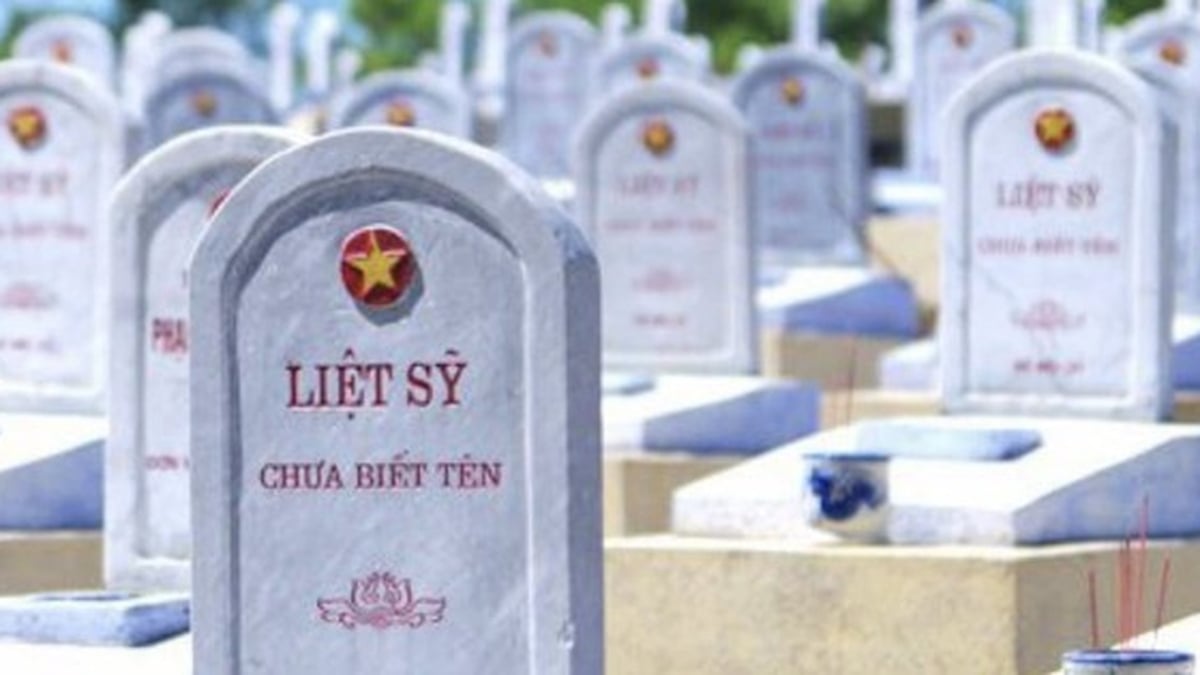
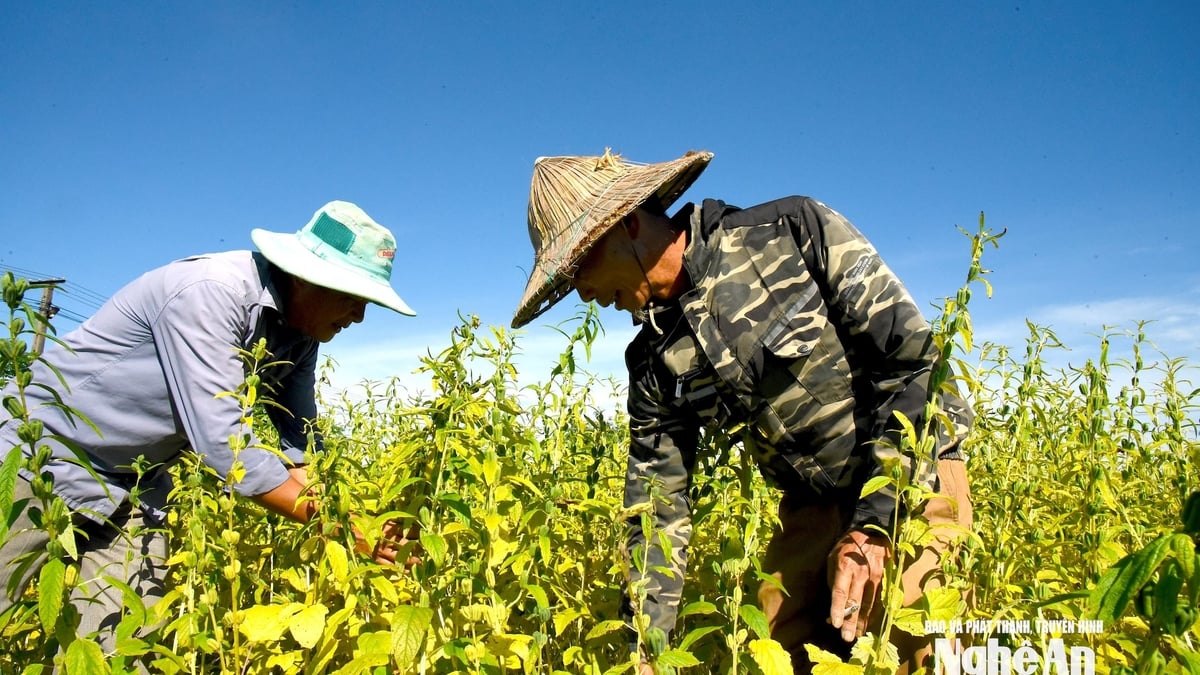

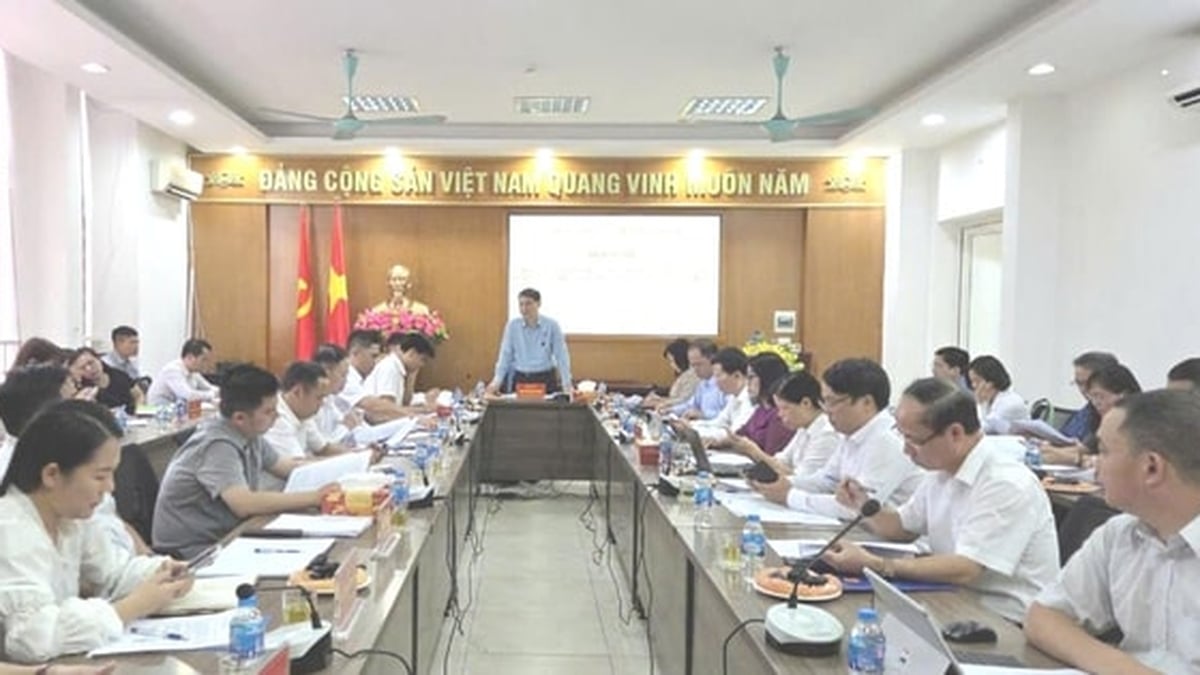

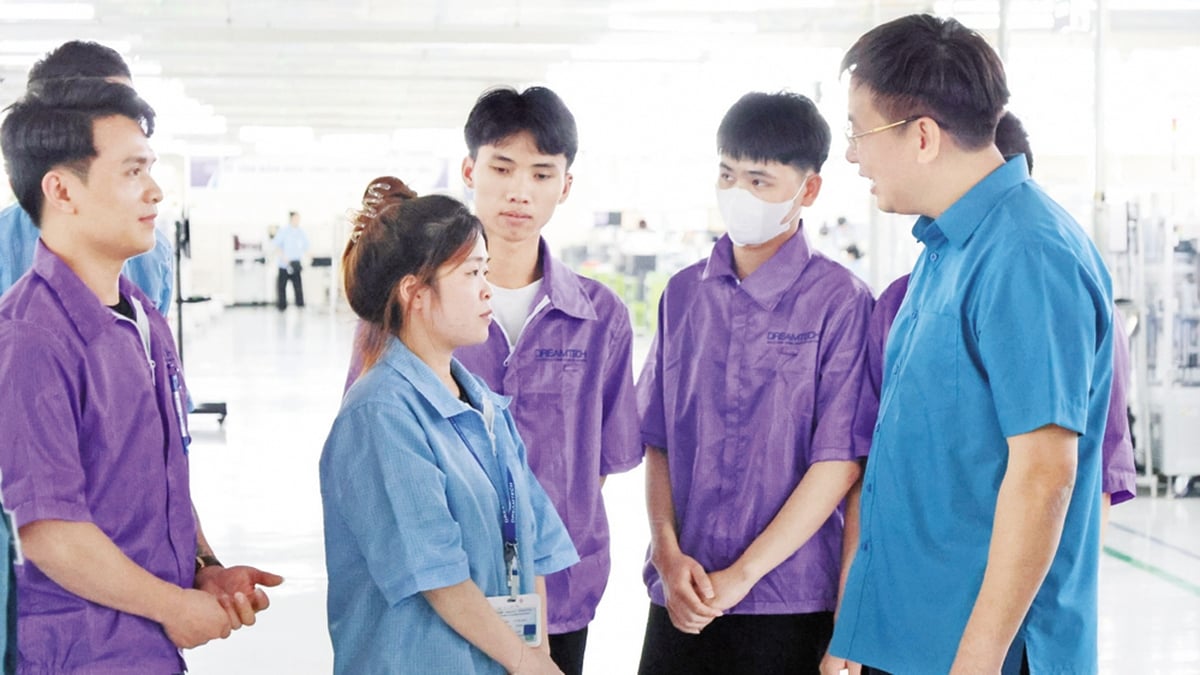


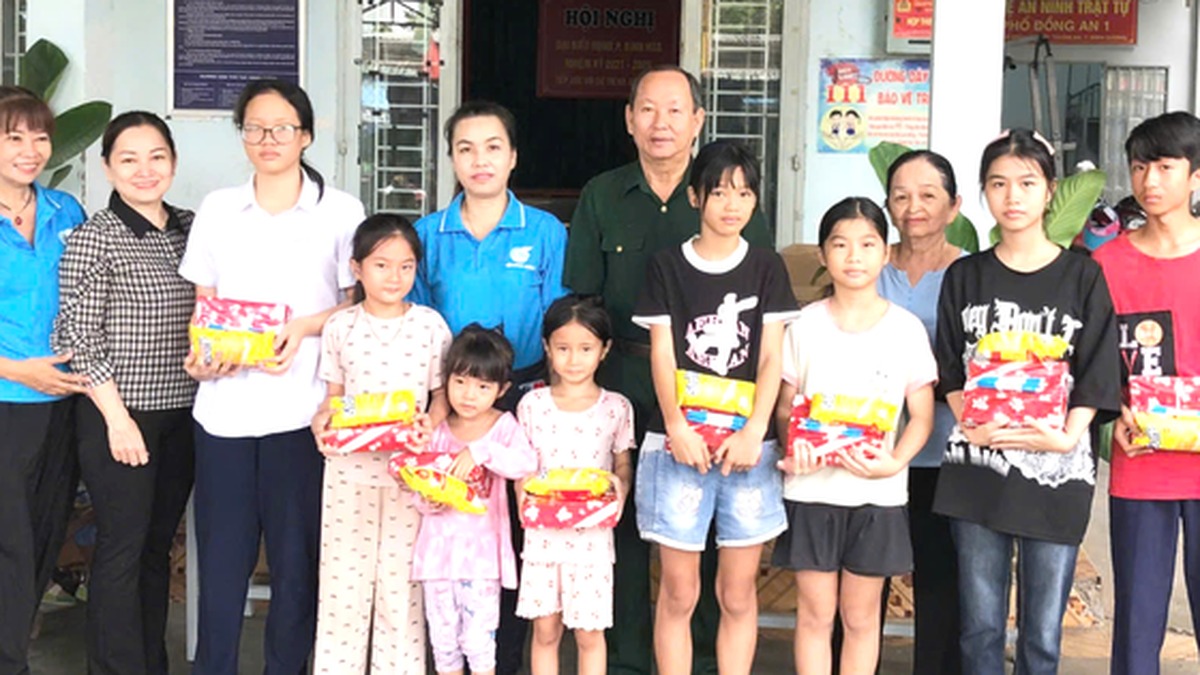












![[Photo] National Assembly Chairman attends the seminar "Building and operating an international financial center and recommendations for Vietnam"](https://vphoto.vietnam.vn/thumb/1200x675/vietnam/resource/IMAGE/2025/7/28/76393436936e457db31ec84433289f72)













































































Comment (0)